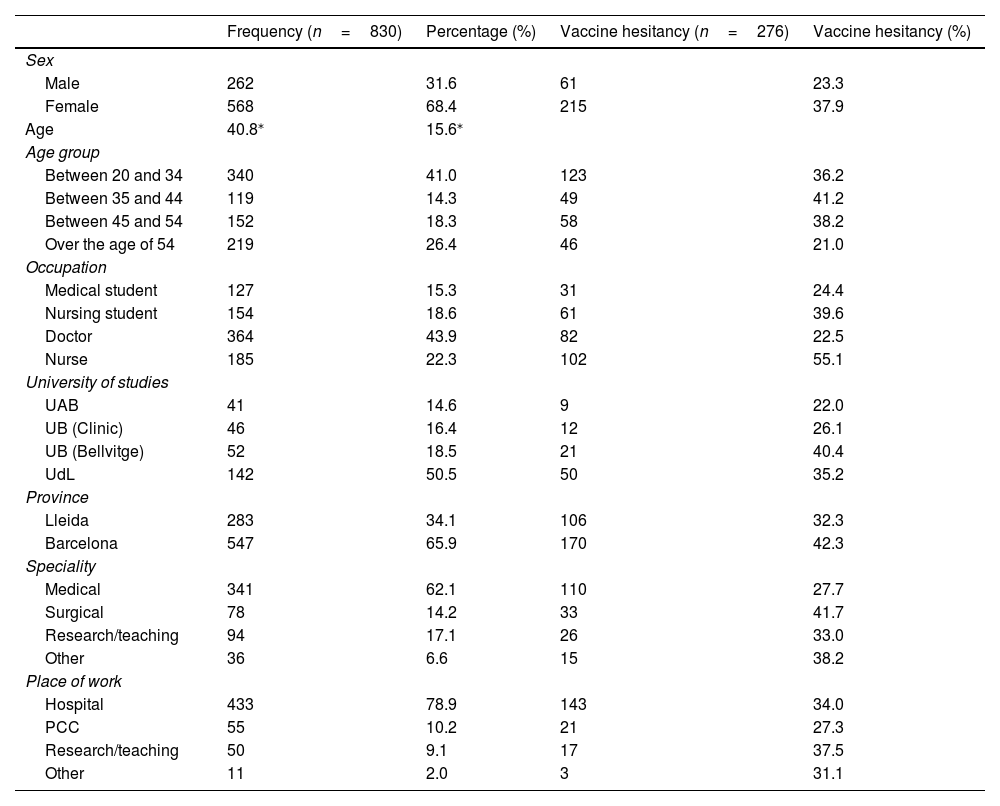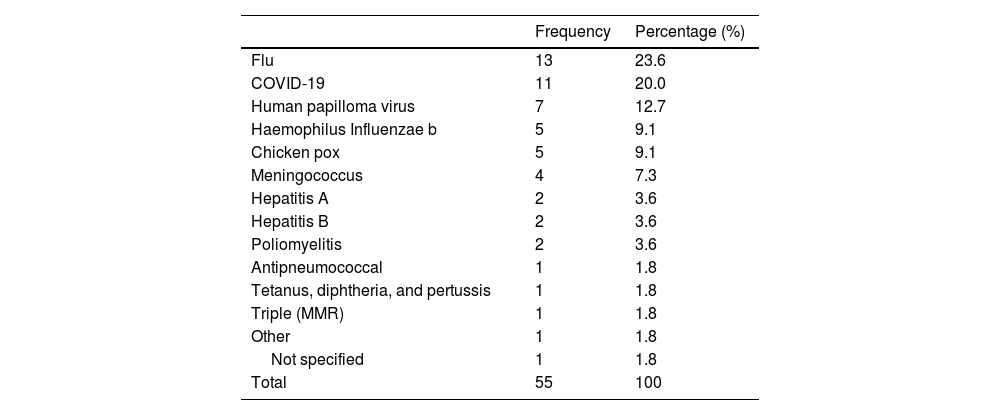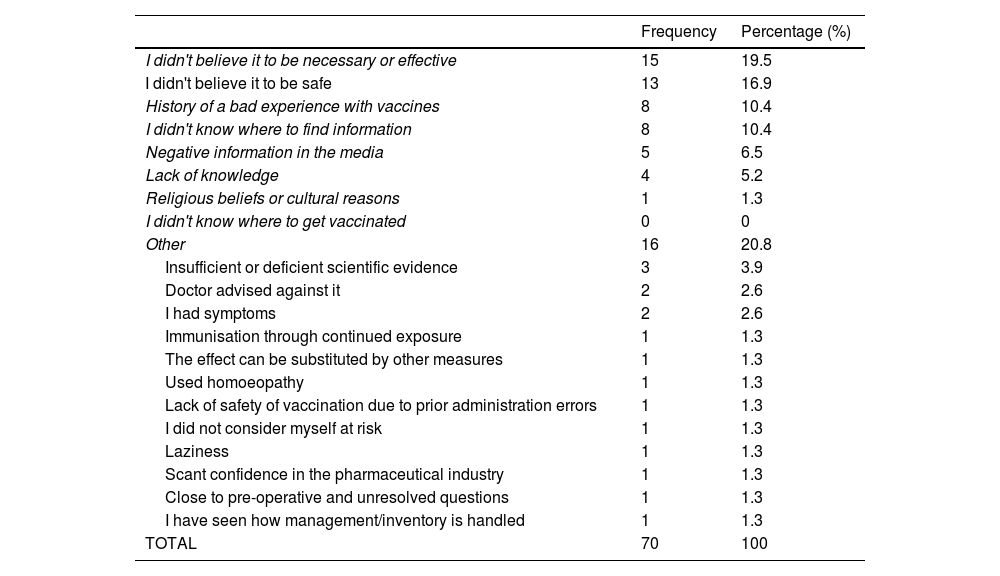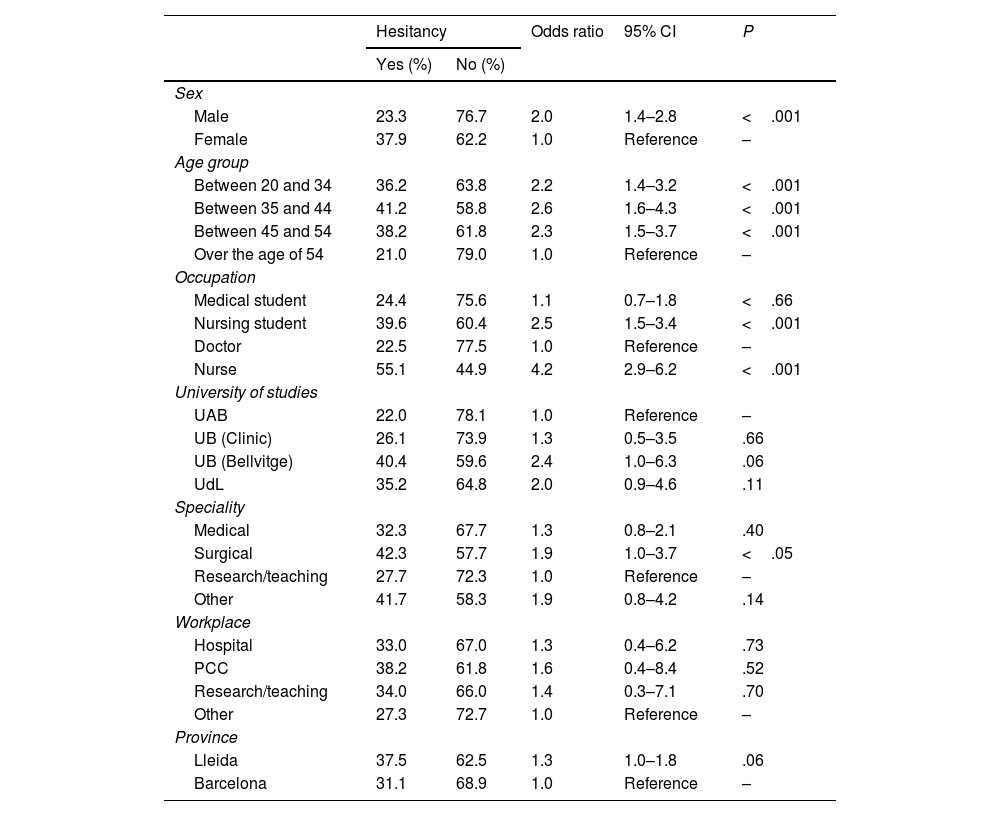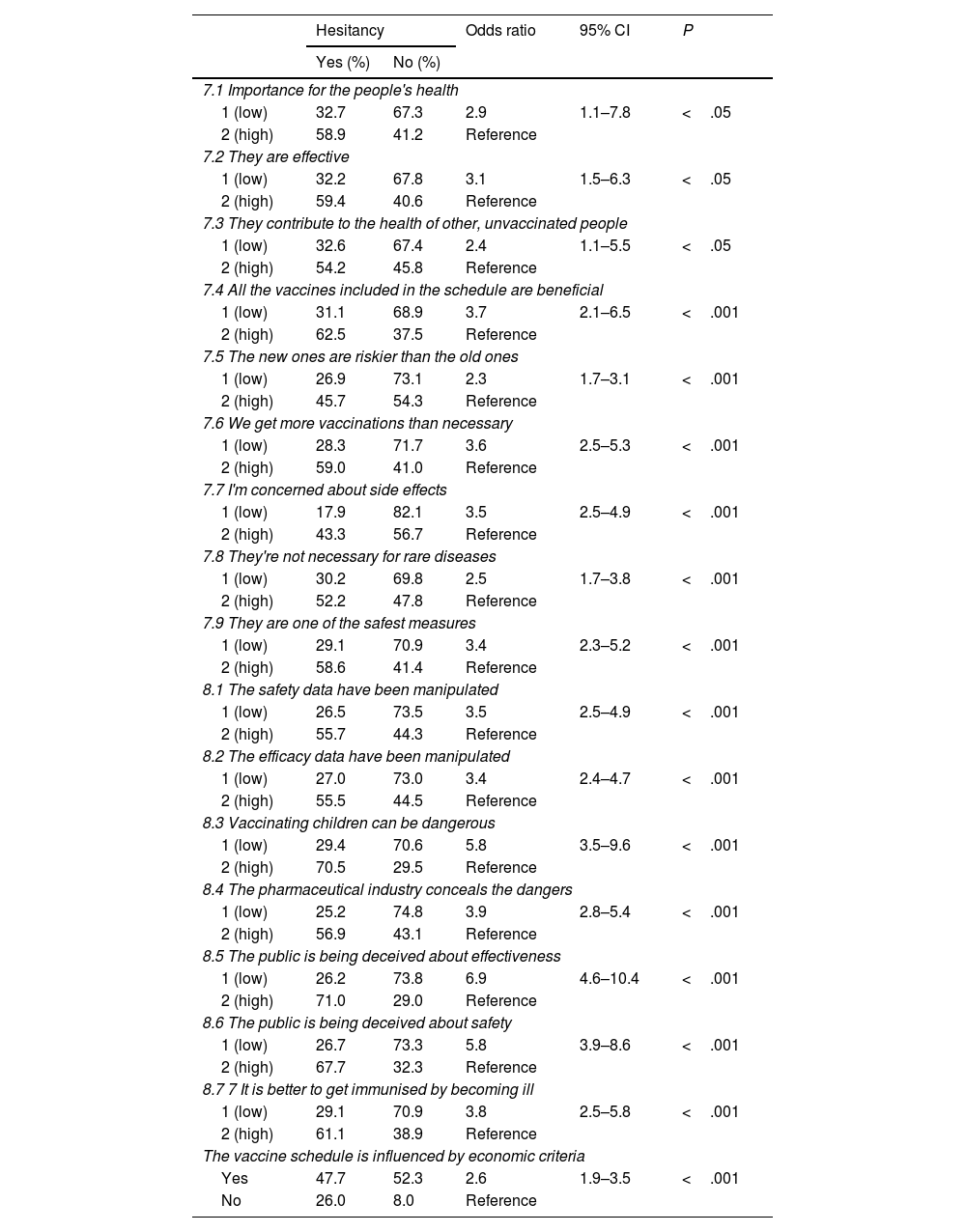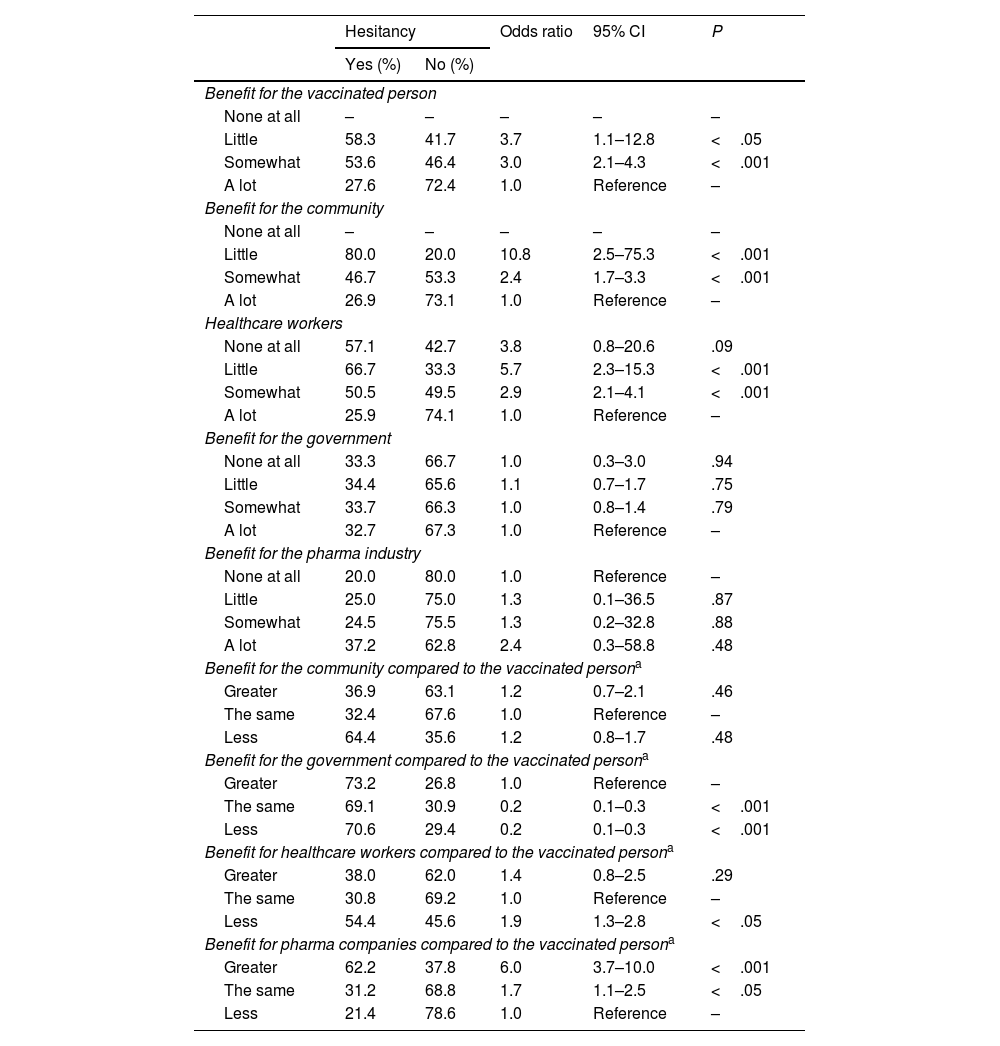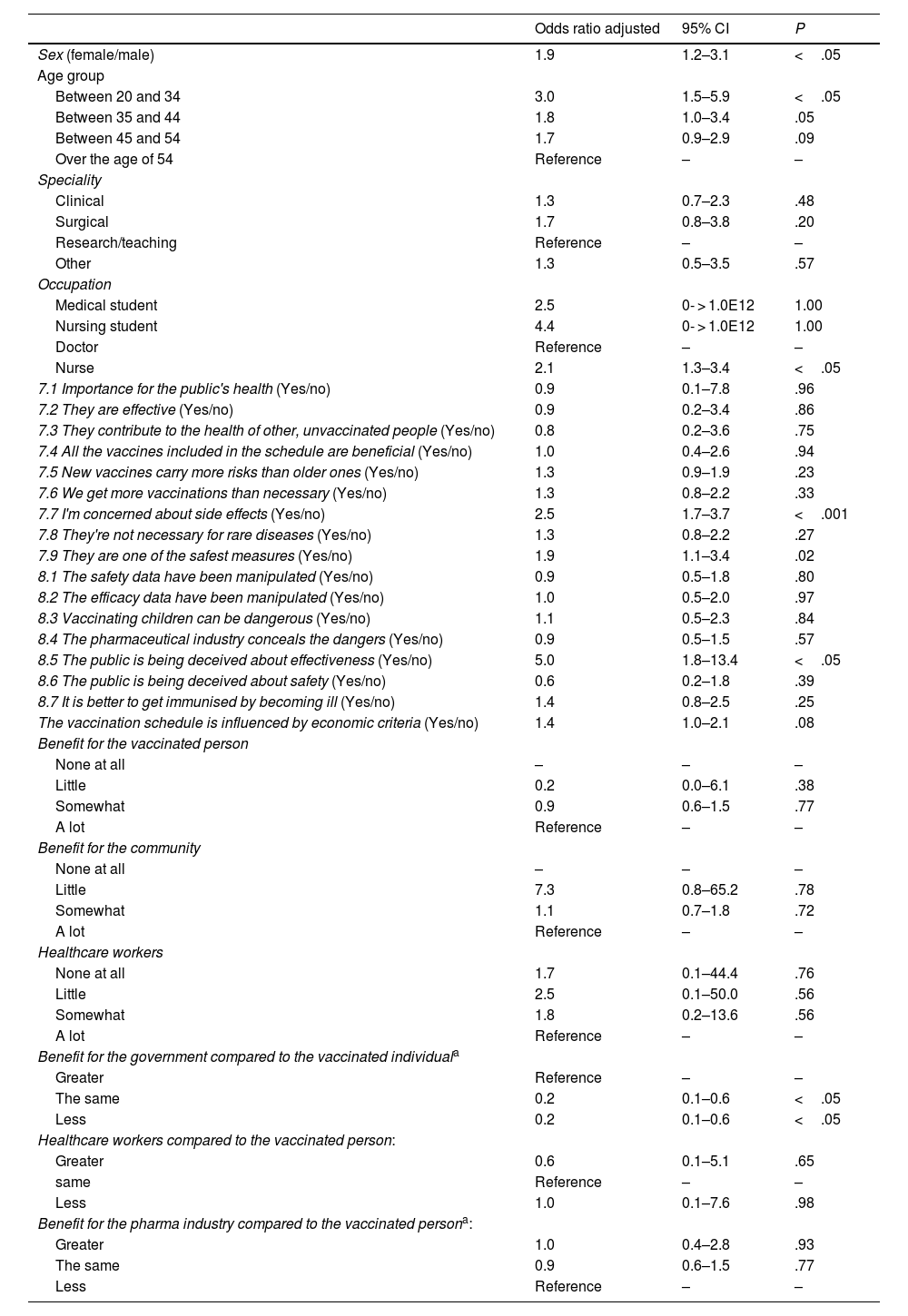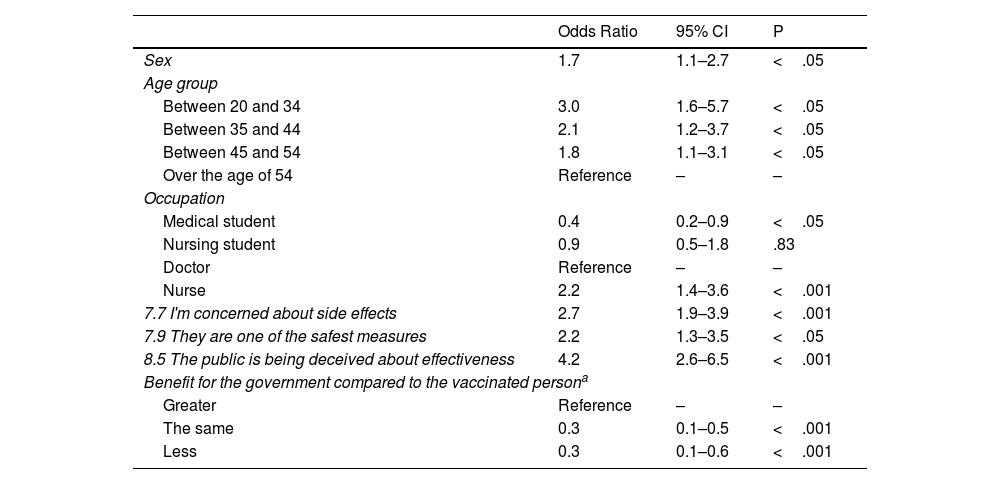To evaluate the vaccination hesitancy of health professionals and students in the last courses of the medical and nursing degrees.
Material and methodCross-sectional study in which the data of the students of the last courses of the main universities of Lleida and Barcelona and of the doctors and nurses teaching staff of them have been collected. The collection was done through a previously validated questionnaire about their opinions regarding different aspects of the vaccines and the fact of having delayed or refused the administration of a vaccine. The dependent variable was vaccine hesitancy and its association with the main independent variables was determined with the odds ratio (OR) and its 95% confidence interval (CI). The ORs were adjusted using logistic regression models.
ResultsA 33% of vaccine hesitancy has been found among health professionals and students in the last courses, with 12% of people who have refused the administration of any vaccine. It is higher in women and nurses. The main rejected vaccines have been, in order, flu, COVID, and HPV and the main reasons, not believing them necessary, safe or effective.
ConclusionsUp to a third of health professionals or students have vaccine hesitancy, especially nursing staff, the main collective in charge of administering vaccines who, according to other studies, have more relevance in population vaccination hesitancy.
Evaluar la reticencia vacunal de los profesionales de la salud y los estudiantes de los últimos cursos de la carrera de medicina y enfermería.
Material y métodoEstudio transversal en el que se han recogido los datos de los estudiantes de los últimos cursos de las universidades de Lleida y Barcelona y de los médicos y enfermeros que componen el personal docente de estas. Se utilizó un cuestionario previamente validado sobre sus opiniones respecto a las vacunas y el motivo de haber retrasado o rechazado la administración de una vacuna. La variable dependiente fue la reticencia vacunal y su asociación con las principales variables independientes se determinó con la odds ratio (OR) y su intervalo de confianza (IC) del 95%. Las OR se ajustaron mediante modelos de regresión logística.
ResultadosSe estimó un grado de reticencia vacunal de un 33% entre los profesionales de la salud y estudiantes de los últimos cursos, con un 12% de personas que rechazaron la administración de alguna vacuna. La reticencia fue más elevada en mujeres (ORa = 1,9; IC95% 1,2-3,1) y enfermeras (ORa = 2,1; IC95% 1,3-3,4). Las principales vacunas rechazadas han sido, por orden, gripe, COVID y VPH y los principales motivos, no creerlas necesarias, seguras o efectivas.
ConclusionesHasta un tercio de los profesionales sanitarios o estudiantes presentan reticencia vacunal, sobre todo el personal de enfermería. Se debe de mejorar la formación en vacunas, especialmente del personal de enfermería.





